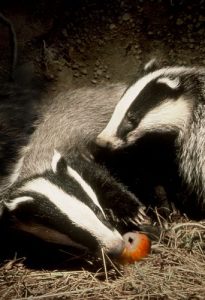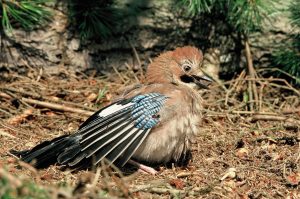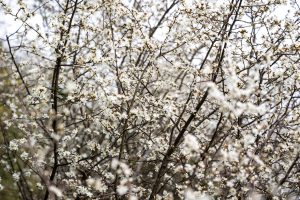Autumn windfall
This time of the year brings a bounty of ripening fruit and surely the most important in Devon is the apple. While the Romans are credited with the introduction of eaters, we have the Normans to thank for cider. An alcoholic beverage better known locally as ‘Devil’s Brew’ or ‘Rocket Fuel’. Devon became as famous for this fruit as for the fermenting of a magic potion, gurgling in great barrels at this time of the year. Nowadays many counties seem to claim the best cider, but one of the most original still comes from the Teign Valley in South Devon. A picturesque place, where steep wooded hillsides dip down to lush river meadows, renowned for providing some of the best apple growing conditions in Britain. In its most basic and perhaps potent process, the apple juice ferments and matures to make ‘scrumpy’, a rough cider made from nearby traditional apples. Today the term is more often used to distinguish farm made cider, using time-honoured techniques in smaller quantities. A skill retained by an increasingly rare breed.
Traditionally cider is made by hand using a centuries old wooden press, in a barn perhaps dating back to Saxon times. Here the apple pulp slowly filters through fresh straw before being left to ferment naturally in wooden barrels.
This industry has bubbled away for centuries, from first flower to fermenting fruit, fuelling generations of people and wildlife. I first featured these old farm orchards in one my BBC television series. Not only for their significance for wildlife but also because they were vanishing. Today some have been saved and given a new lease of life. Re-planted with tall, well-spaced trees so they can be can be grazed underneath by sheep or cattle. Each autumn now finds a veritable mountain of fruit awaiting their transformation into the ancient magic juice. Even the apple names conjure times past: Hand me Downs, Slack me-Girdle, Sweet Alfords and Fair Maids of Devon. A beverage safer than water and packed with nutrients, cider once fuelled the farming and labouring forces of rural Britain.
Last but not least, orchards are important places for wild butterflies, bees, birds and mammals. The bees pollinate the flowers, while Mistle Thrush nest among their branches and Badgers just wait for fallen fruit. Even taking them home. A behaviour first revealed by BBC Autumnwatch transmitted live from our own traditional orchard. So perhaps remember November for the legendary life enhancing benefits of apple juice, that’s not only good for wildlife but perhaps even better for us.
Andrew Cooper
Photograph: Badgers underground eating apple
Traditionally cider is made by hand using a centuries old wooden press, in a barn perhaps dating back to Saxon times. Here the apple pulp slowly filters through fresh straw before being left to ferment naturally in wooden barrels.
This industry has bubbled away for centuries, from first flower to fermenting fruit, fuelling generations of people and wildlife. I first featured these old farm orchards in one my BBC television series. Not only for their significance for wildlife but also because they were vanishing. Today some have been saved and given a new lease of life. Re-planted with tall, well-spaced trees so they can be can be grazed underneath by sheep or cattle. Each autumn now finds a veritable mountain of fruit awaiting their transformation into the ancient magic juice. Even the apple names conjure times past: Hand me Downs, Slack me-Girdle, Sweet Alfords and Fair Maids of Devon. A beverage safer than water and packed with nutrients, cider once fuelled the farming and labouring forces of rural Britain.
Last but not least, orchards are important places for wild butterflies, bees, birds and mammals. The bees pollinate the flowers, while Mistle Thrush nest among their branches and Badgers just wait for fallen fruit. Even taking them home. A behaviour first revealed by BBC Autumnwatch transmitted live from our own traditional orchard. So perhaps remember November for the legendary life enhancing benefits of apple juice, that’s not only good for wildlife but perhaps even better for us.
Andrew Cooper
Photograph: Badgers underground eating apple



